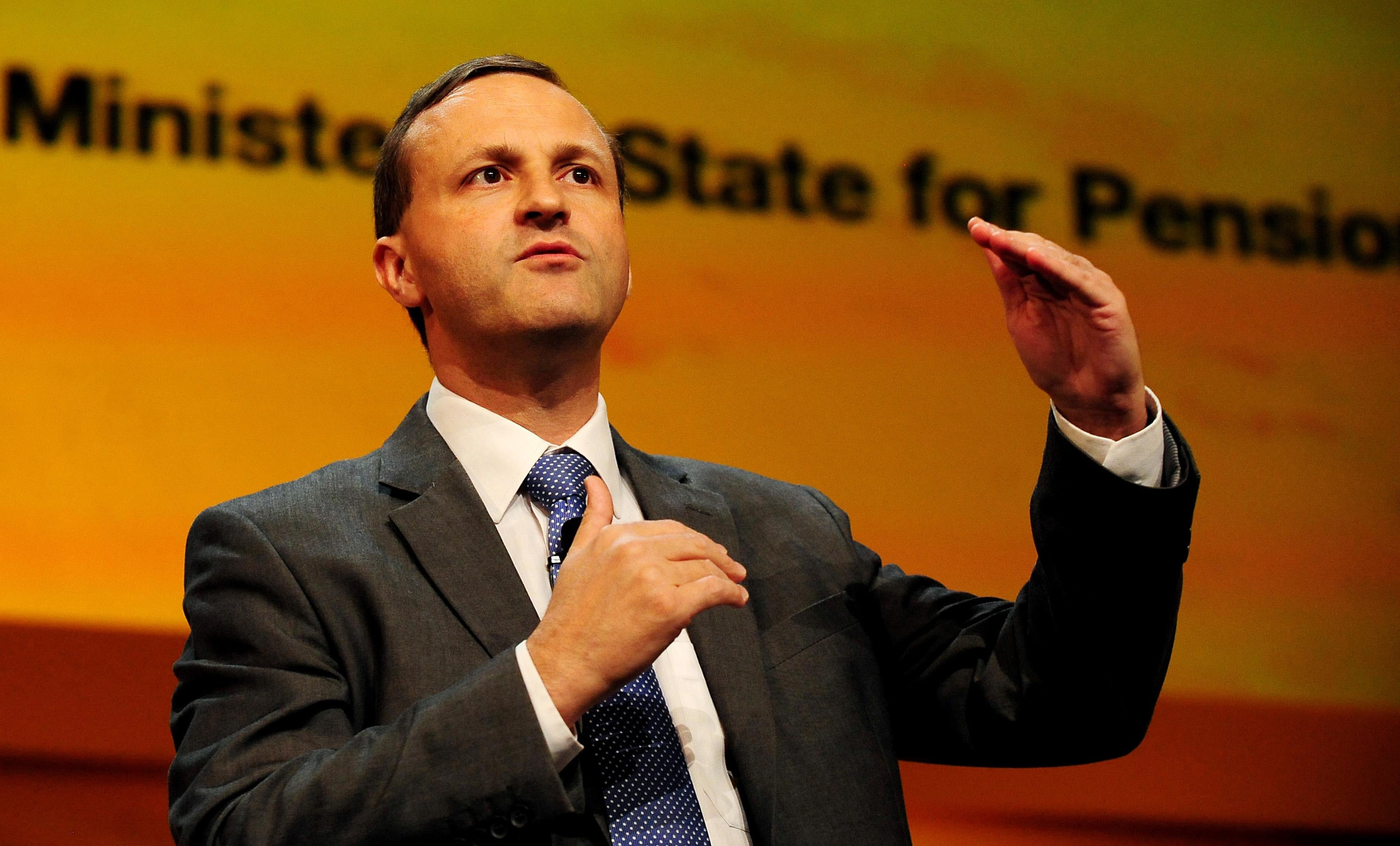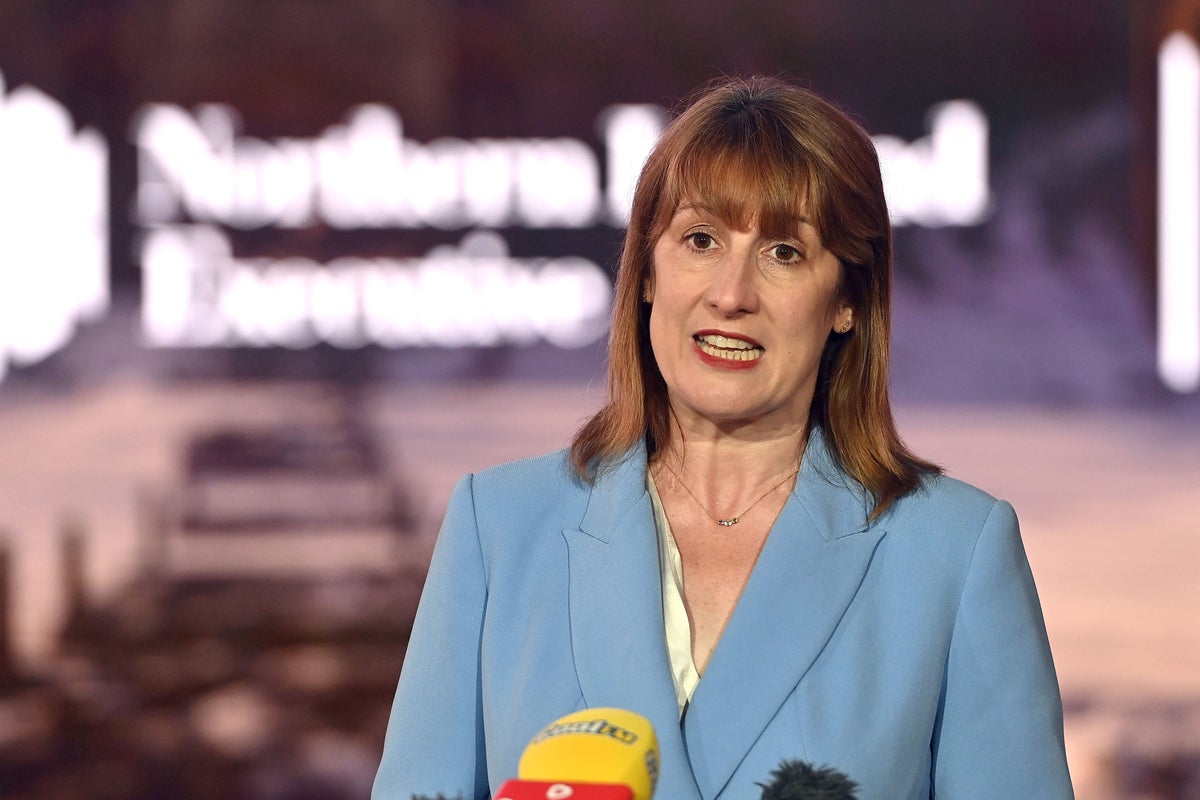From reproductive rights to climate change to Big Tech, The Independent is on the ground when the story is developing. Whether it’s investigating the financials of Elon Musk’s pro-Trump PAC or producing our latest documentary, ‘The A Word’, which shines a light on the American women fighting for reproductive rights, we know how important it is to parse out the facts from the messaging.
At such a critical moment in US history, we need reporters on the ground. Your donation allows us to keep sending journalists to speak to both sides of the story.
The Independent is trusted by Americans across the entire political spectrum. And unlike many other quality news outlets, we choose not to lock Americans out of our reporting and analysis with paywalls. We believe quality journalism should be available to everyone, paid for by those who can afford it.
Your support makes all the difference.
Read more
Rachel Reeves has been warned that cutting the tax-free amount savers can withdraw from their pension pots would be self-defeating and “disproportionately hit responsible savers who have diligently put money aside”.
The chancellor will look at proposals from civil servants that could raise around £2bn by lowering the limit on how much people are allowed to take out of their pension without paying tax.
Currently, pensioners can take out a quarter of their pension pot tax-free, with a cap of £268,000. Lowering the level could bring in billions of pounds of additional tax revenue each year as the Treasury grapples with a black hole of as much as £50bn.

open image in gallery
Rachel Reeves could consider cutting the tax-free pension lump sum allowance (PA Wire)
But Lisa Picardo, chief business officer at pension platform PensionBee, said: “Such a cut would disproportionately hit responsible savers who have diligently put money aside.
“Savers already face shifting tax rules, so removing or altering this benefit would only add more uncertainty and make it harder for people to plan with confidence.”
“This kind of policy shift risks punishing those who have played by the rules – it sends a signal that the goalposts can be moved after decisions have been made, further eroding trust in the pensions system,” she added.
And former pensions minister Sir Steve Webb warned that any change to the tax-free lump sum allowance would be “hugely controversial”.
Sir Steve, now partner at pension consultants LCP, said: “For a chancellor needing money quickly, politically contentious changes which generate little short-term gain are not likely to be attractive.”
He said the change would hit long-standing public servants in particular, who would be snared by any last-minute changes shortly before their retirement. And he said if the move does go ahead, the chancellor must introduce “transitional protection” for those who have built up lump sums in excess of any new cap.
Meanwhile Andrew King, retirement planning specialist at wealth manager Evelyn Partners, said the change would break a long-standing promise made to savers and could spark a move away from people making pension contributions as the benefits are eroded.
The shift could make the policy self-defeating as it would make savers less likely to save into a pension leaving them more reliant on the state when they reach retirement, he warned.
“Let us also not forget that pension savers have been promised the ‘aspirational’ 25 per cent tax free lump sum for many many years and many retirement goals would have been planned around this such as the holiday of a lifetime, the purchase of a motorhome, new car or holiday home,” he said.

open image in gallery
Ex-pensions minister Sir Steve Webb warned the change would be hugely controversial (PA Archive)
Mr King added: “Reducing this would seem to be the breaking of a long standing promise which would detrimentally affect people’s retirement plans.”
The Treasury did not rule out lowering the cap on the tax-free pension lump sum, but an official told The Daily Telegraph it was “unlikely”. But experts told the paper Ms Reeves may be forced to consider the move because of the huge sum she needs to find in this autumn’s Budget.
Leading economists have warned Ms Reeves that she must raise taxes or tear up her flagship borrowing rules to fill a £50bn black hole left by a combination of Labour U-turns, higher borrowing and sluggish economic growth.
The National Institute of Economic and Social Research (NIESR) – a leading economic think tank – said the chancellor could also look at spending cuts in the Budget to plug a £41.2bn shortfall in the targets set out by her own so-called fiscal rules.
To restore an almost £10bn buffer in the current forecasts, the chancellor must therefore raise a total of £51.1bn, it warned.
Ms Reeves is also said to be considering hitting the owners of high-value properties with capital gains tax when they sell their homes as part of an attempt to make up the spending gap.
The chancellor is said to be looking at ending the current exemption from capital gains tax for primary residences as she seeks ways to raise cash in the face of dire warnings about the state of the public finances – a move that would be seen as a “mansion tax”.
Speaking to The Telegraph, John Harvard, a consultant at tax firm Blick Rothenberg, said: “Rachel Reeves has taken all her easy choices for increasing tax revenue off the table by sticking with her manifesto promises. But one option that remains open to her is targeting pension tax reliefs.”
Pensions minister Torsten Bell has previously suggested slashing the tax-free lump sum limit to £40,000.

open image in gallery
Torsten Bell has previously said the cap should be lowered (Jordan Pettitt/PA Wire)
The chancellor received a boost on Thursday, however, when government borrowing slowed to a lower-than-expected £1.1bn in July.
The Office for National Statistics said the figure, which was £2.3bn less than the same month a year earlier, is the lowest July borrowing figure for three years.
It came after a rise in self-assessed income tax and national insurance payments helped increase tax receipts for the month.
July borrowing was lower than the £2bn figure predicted by a consensus of economists. Borrowing for the first four months of the financial year stood at £60bn – £6.7bn more than during the same period last year.
ONS deputy director for public sector finances Rob Doody said: “Borrowing this July was £2.3bn down on the same month last year and was the lowest July figure for three years.
“This reflects strong increases in tax and national insurance receipts. However, in the first four months of the financial year as a whole, borrowing was over £6bn higher than in the same period in 2024.”
Chief secretary to the Treasury Darren Jones said: “We’re investing in our public services and modernising the state, to improve outcomes and reduce costs in the medium term.
“Far too much taxpayer money is spent on interest payments for the longstanding national debt.
“That’s why we’re driving down government borrowing over the course of the parliament – so working people don’t have to foot the bill and we can invest in better schools, hospitals and services for working families.”
A Treasury spokesman said: “The best way to strengthen public finances is by growing the economy – which is our focus. Changes to tax and spend policy are not the only ways of doing this, as seen with our planning reforms, which are expected to grow the economy by £6.8bn and cut borrowing by £3.4bn.
“We are committed to keeping taxes for working people as low as possible, which is why at last Autumn’s Budget, we protected working people’s payslips and kept our promise not to raise the basic, higher or additional rates of Income Tax, employee National Insurance, or VAT.”
